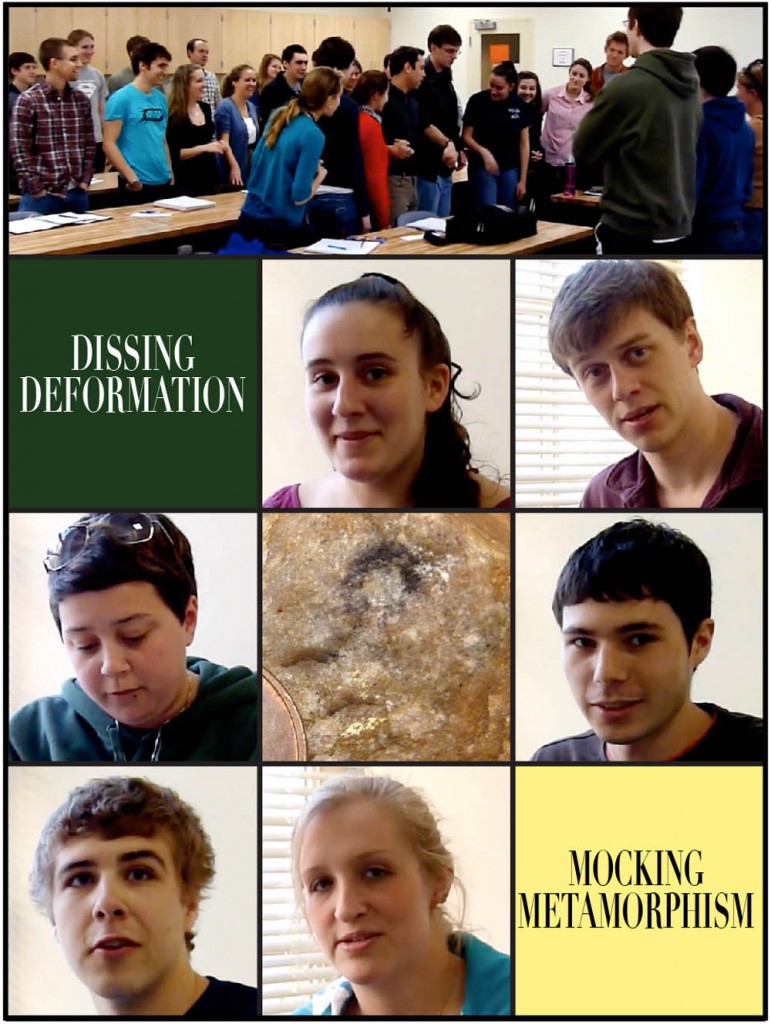What’s in a Name?
I’ve taught geology courses at William & Mary for over fifteen years, and during that time I’ve seen and heard a litany of student misconceptions about how the Earth, the Solar System, and the Universe work. Ask an introductory earth science class to explain why there are seasons in Williamsburg or what makes the sky blue and you’ll get a bewildering array of answers. For me, common scientific misconceptions are both a sobering reminder of scientific literacy (or the lack thereof), and an excellent opportunity to help students grow their critical thinking skills as well as increase their savvy about the natural world.
Earlier this semester, as part of a laboratory homework exercise, I asked my Earth Structure & Dynamics class to identify a rock and describe a curious structure within that rock. The rock is a well-cemented, quartz-rich sandstone with the distinctive trace fossil Skolithos. The class offered up an assortment of rock names—some called it a sedimentary sandstone whereas others called it a metamorphic quartzite. But what’s in a name? Geologists use names to help classify rocks, but the name we give to a rock speaks not only about its composition and texture, but also about its history. A sedimentary sandstone and a metamorphic quartzite have experienced different histories. The students’ confessions got me thinking that not all the students were grounded in the difference between deformation and metamorphism. It is easy to conflate deformation with metamorphism, but these processes are not synonymous. Deformation and metamorphism commonly occur out-of-sight in the Earth’s interior and, perhaps because of this, students struggle to understand these processes.
What follows is a short and, some might say, regal video crafted by W&M research fellow Chelsea Jenkins highlighting typical student observations and their interpretations about the rock. Our hope is that this video helps to clear up some common geological misconceptions about deformation and metamorphism.

Movie poster for the “Dissing Deformation and Mocking Metamorphism” a full-length avant-garde film coming to a theater near you! (A W&M Earth Structure & Dynamics production).



No comments.
Comments are currently closed. Comments are closed on all posts older than one year, and for those in our archive.